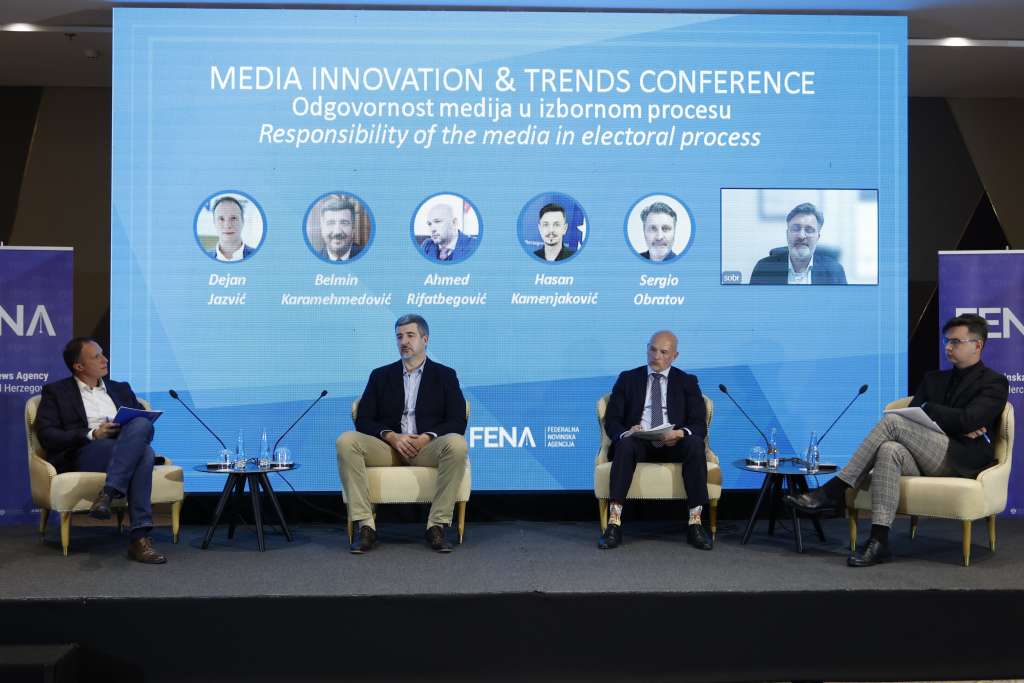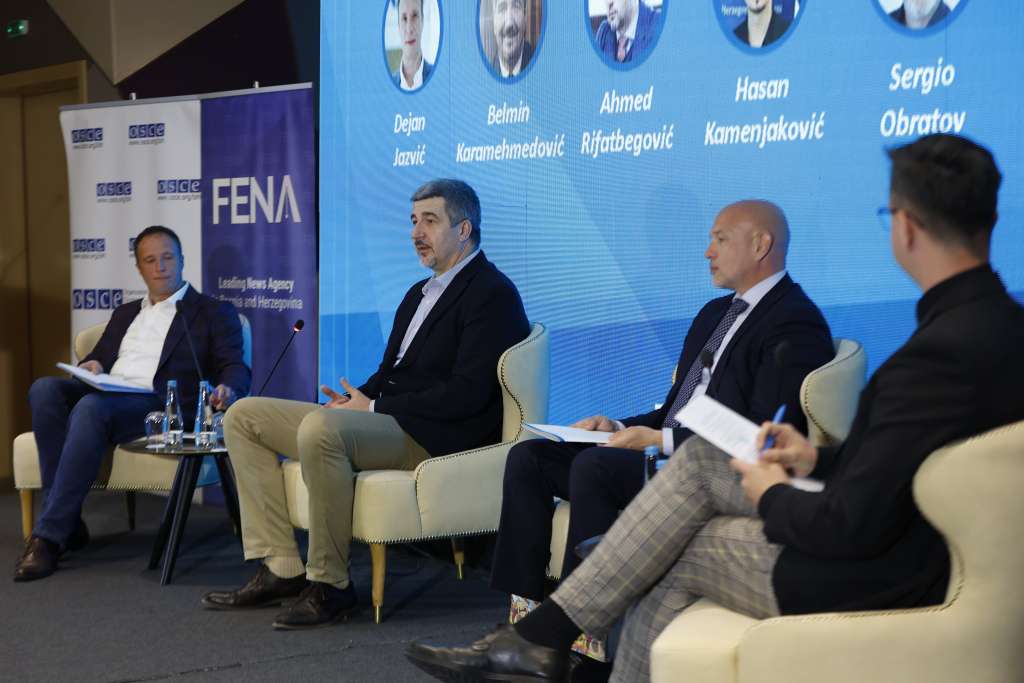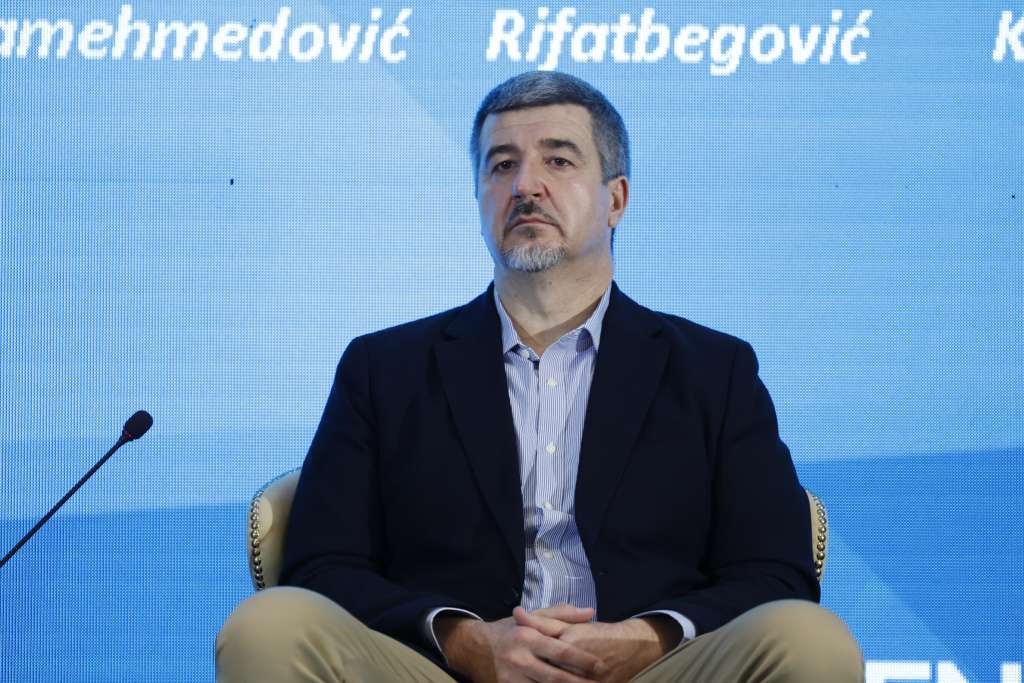SARAJEVO, May 8 (FENA) - The media play a key role in all electoral processes, and with the increase in the use of artificial intelligence in the pre-election period, the challenge of monitoring the electoral process is growing, it was said today at the "Responsibility of the Media in Electoral Process" conference, which was held today in Sarajevo, organized by the Federal News Agency (FENA) and the OSCE Mission to Bosnia and Herzegovina.
Political Advisor in the Cabinet of the Head of the OSCE Mission, Ahmed Rifatbegović, in the panel "Importance and responsibility of news agencies/media in the electoral process", pointed out that the ODIHR regularly publishes its recommendations and reports related to the elections in BiH, which partially include the media.
''Three key recommendations have been repeated cyclically since 2010 and fall into the category of recommendations that do not require changes to laws or by-laws, but only changes to existing practice,'' he pointed out.
The first, he added, is objective and impartial reporting by public broadcasters, then the obligation of the authorities in BiH to ensure transparent and continuous financing of public broadcasters, a situation that has escalated these days, and the obligation of the authorities to ensure quick processing of attacks on journalists.
Director General of BHRT, Belmin Karamehmedović, stated that the media play a key role in all electoral processes, especially in a country like BiH, which is small but very complicated on many grounds.
''This conference is certainly a contribution and faith in the media to do their job as well as possible when it comes to elections,'' he pointed out.
Speaking about BHRT's experiences in monitoring electoral processes in BiH, he said that for years they have received good evaluations from independent researchers and that they have never had political support or pressure, which enabled them to perform their work in the most professional manner.
Editor-in-Chief of the Croatian news agency HINA, Sergio Obratov, said that 2024 is a super-election year in Croatia and referred to how HINA, as a public media, "coped" with a short but dirty election campaign and what was the main risk or challenge.
''HINA has extensive experience in monitoring elections and each one is a special challenge because we have a great responsibility towards the voters, which is not an easy task at all today,'' he pointed out.
Commenting on the previous campaign, he said that it was not "dirtier" compared to the previous one, although some claim that the political culture in Croatia has deteriorated.
PR coordinator of the NGO Coalition "Pod lupom" Hasan Kamenjaković spoke about the behavior of the media from the perspective of observers of the electoral process, especially news agencies as the sources most often used by other media.
''Taking into account the complex media picture in BiH, the media is partially fair and objective in reporting during the elections, but there are also situations where the media violate media principles, and this comes from fragments of the media scene that imitate parties or ethnic groups,'' said Kamenjaković and praised cooperation of the media and non-governmental organizations.
Head of AFP Medialab R&D and innovation manager of the European project VeraAI Denis Teyssou held a presentation on new trends in the use of AI in the media, primarily in the form of voice, photo or video manipulation, and presented the tools that journalists can use to detect these manipulations.
(FENA) A. B.





















